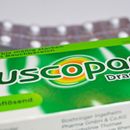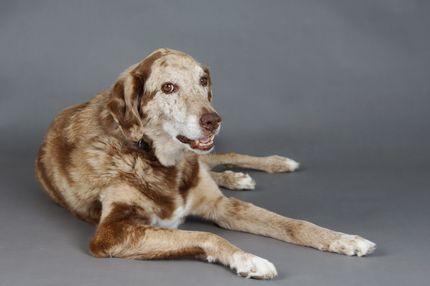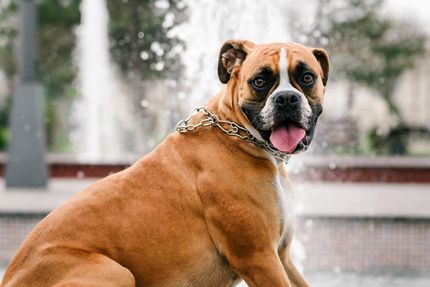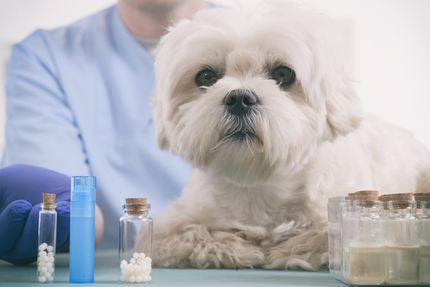Diarrhea in dogs - causes and how to get rid of it again
The causes of diarrhea in dogs are very different and not always immediately recognizable for dog owners as well as for the veterinarian. However, in order to be able to initiate a causal, i.e. as cause-related as possible, therapy, it is of great importance to know the exact trigger for the diarrhea. Dogs of all ages can suffer from diarrhea, and it is not uncommon for a puppy to have diarrhea. In the majority of cases, diarrhea in dogs is caused by infections with bacteria, viruses or parasites. A stool examination at the veterinarian and in a microbiological laboratory can very quickly provide information about whether diarrhea pathogens are a possible cause. The following topics are covered in this article:
- Why does my dog have diarrhea?
- What can I feed my dog when he has diarrhea?
- How can I treat diarrhea in my dog at home?
- When should I take my dog to the vet if he has diarrhea?
- Can I give my dog medication for diarrhea?
- Is diarrhea in dogs contagious?
- How long does it take for diarrhea to pass in a dog?
- Can diarrhea in dogs be caused by stress?
- What are the causes of bloody diarrhea in dogs?
- Can I give my dog Imodium for diarrhea?
Please note that a veterinarian should always be consulted if a pet has health problems. While general information and advice can be helpful, it is important to get a professional medical opinion, especially if symptoms persist or worsen.
If a dog has diarrhea, it can even be life-threatening
Also, if a dog has ingested poison bait, it may reflexively develop convulsive diarrhea. If your dog has eaten poison, a veterinarian should be consulted immediately. Even if the cause of your dog's diarrhea is initially unknown, the veterinarian should always be consulted if symptoms persist for more than a day or worsen. Dietary errors or hypothermia can also cause diarrhea in a dog. In addition, organ dysfunction, particularly of the liver, kidney or pancreas, can lead to digestive problems and thus to severe diarrhea. This type of diarrhea occurs especially in older animals and is then unfortunately usually difficult to treat. No matter what the cause behind diarrhea, it should always be remembered that the associated lack of fluids must be compensated for quickly, otherwise there is a risk of dehydration. This can also be a life-threatening condition. To compensate for the loss of electrolytes, you should give your pet fluids. If the dog refuses the fluid, intravenous administration by infusion is necessary. For this you must then visit the veterinarian or the veterinary clinic.
Why does my dog have diarrhea? Diarrhea in dogs can be caused by a variety of factors. Most commonly, it is caused by a sudden change in diet, consumption of inappropriate foods, or a bacterial or viral infection. Sometimes diarrhea can also be a symptom of a more serious underlying condition, such as a disease of the gastrointestinal tract or kidney disease. If a dog has persistent or severe diarrhea, it should definitely be examined by a veterinarian.
What can I feed my dog for diarrhea? When a dog has diarrhea, it is often recommended to feed him a light, easy-to-digest diet. Boiled chicken and white rice are often recommended as appropriate foods. It is important to keep the dog adequately hydrated, as diarrhea can lead to dehydration. It is also recommended to reduce the amount of food and offer small meals more frequently until the condition improves.
How can I treat diarrhea in my dog at home? Treating diarrhea in dogs at home should always be done in consultation with a veterinarian. Sometimes it is recommended that the dog be fasted for 12 to 24 hours to soothe the gastrointestinal tract, followed by a mild diet. It is important that the dog drink enough fluids. Sometimes the veterinarian may also prescribe medication to treat the diarrhea.
When should I take my dog to the vet if he has diarrhea? It is recommended to see a veterinarian if the diarrhea lasts longer than 24 hours, if the dog vomits at the same time, if blood is seen in the stool, or if the dog seems lethargic or shows loss of appetite. Likewise, a veterinary examination is indicated if the dog exhibits additional symptoms, such as fever or pain.
Can I give my dog medication for diarrhea? There are several medications that can help with diarrhea in dogs. Some of these are available over-the-counter, while others require a prescription. However, it is very important that these medications are only given after consulting with a veterinarian, as some medications that are safe for humans can be harmful to dogs.
Is diarrhea in dogs contagious? Diarrhea itself is not contagious, but the underlying cause of diarrhea, such as a bacterial or viral infection, can be contagious. Therefore, if a dog has diarrhea, it is advisable to keep him away from other dogs until the cause of the diarrhea is determined.
How long does it take for diarrhea to pass in a dog? The duration of diarrhea in a dog can vary and depends greatly on the underlying cause. In many cases where diarrhea is caused by a simple stomach upset, it may pass within 24 to 48 hours. In other cases, especially if there is a more serious underlying condition, diarrhea may last longer and require medical attention.
Can diarrhea in dogs be caused by stress? It is recognized that stress can be a possible trigger for diarrhea in dogs. Changes in environment, travel, new pets or people in the house, or other stressful events can cause stomach upset and consequently diarrhea. In such cases, it is important to identify and minimize the stress trigger and carefully monitor the dog to ensure that the diarrhea does not become chronic or indicate a more serious underlying condition.
What are the causes of bloody diarrhea in dogs? Bloody diarrhea in dogs can indicate a variety of health problems. It can be a sign of a gastrointestinal infection, a parasitic infection, a food allergy or intolerance, or a more serious underlying condition such as gastrointestinal disease or even cancer. If a dog has bloody diarrhea, he should be seen by a veterinarian immediately to identify and treat the underlying cause.
Can I give my dog Imodium for diarrhea? Imodium (loperamide) is a medication used to treat diarrhea in humans. In some cases, it can also be given to dogs, but it should never be given without consulting a veterinarian. In some breeds of dogs, loperamide can cause severe side effects, and it is not suitable for dogs suffering from certain health conditions. It is important to always seek the advice of a veterinarian before giving a dog any medication that is intended for humans.
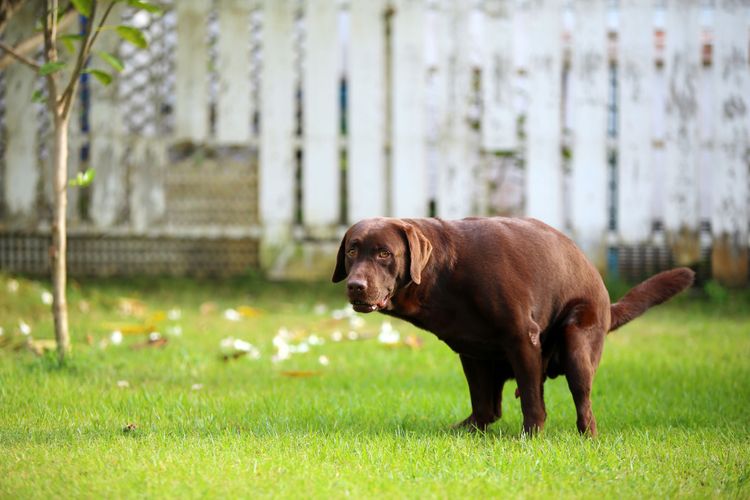
First aid measures for dogs with diarrhea
The main cause of diarrhea in dogs is often infections. In the case of such health complaints, it is crucial to quickly compensate for the loss of fluids. This can be achieved by offering gentle food and soups.
It is of great importance to consult a veterinarian without delay in such a situation. Often a so-called "zero diet" is the recommended therapy. It means a short interruption of food intake to relieve the digestive system.
After a period of zero diet, the dog should be slowly reintroduced to the usual food. During this phase, certain foods have proven to be particularly helpful. Cottage cheese, lean beef and chicken combined with mashed potatoes or boiled rice are excellent.
As the owner of a dog, it is important to closely monitor the consistency of the stool. A return to normal food should only be made when the stool has a firmer consistency again. Normal food can then be added gradually in small amounts until the dog can tolerate the usual amount again without problems.
To manage infectious diarrhea, the veterinarian often prescribes antibiotics after careful examination of the stool and blood. It is essential to strictly follow the instructions for use and the prescribed duration of treatment.


